Best AI Text to speech Tools 2025: Which One Actually Fits Your Creator Style ?
Discover the best AI text-to-speech tools for creators in 2025. Compare ElevenLabs, Play.ht, Descript Overdub & more — see which fits your workflow and your voice goals.
GUIDESREVEIWS
Best AI Text-to-Speech Tools 2025: Which One Actually Fits Your Creator Style?
Let's up your game with ai tools
Why AI Text-to-Speech Is Everywhere Now
Let’s be honest — just a few years ago, AI voices were stiff and obviously fake. But in 2025, text-to-speech is practically a must-have for anyone making content at scale. Whether you’re a YouTuber, indie podcaster, e-learning creator, or run a small agency, realistic TTS helps you turn scripts into quality audio in minutes — no pricey voice actors every time you make an edit. And it’s not just about saving money. It’s about being able to test ideas, go multi-language, or keep your videos sounding consistent across updates.
What Really Makes a Great AI Voice Tool?
If you search for TTS tools right now, you’ll see a ton of promises about “natural voices.” But you’ll know in about three seconds if they’re any good. The best ones don’t just read your script like a robot — they handle pacing, tone, and even emotion. They let you tweak settings so your narration matches your vibe, not some default. They also make fixing mistakes easy, so you’re not stuck re-recording whole sections. And, crucially, they respect consent if you’re cloning your voice. For me, picking a TTS tool always comes down to this: Does it make my content better and my process easier?
ElevenLabs — Best If You Want a Signature Sound
If I had to pick one tool that sounds closest to an actual human in 2025, it’d be ElevenLabs. The voices don’t feel flat — they breathe, pause naturally, and can handle little emotional shifts. The Voice Lab feature is wild: with good samples, you can clone your own voice (with permission) so your channel or training videos always sound like you — even when you tweak scripts last-minute. Plus, those Stability and Similarity sliders let you choose whether you want a crisp, polished tone or something more casual. If realism is your top priority, ElevenLabs is hard to beat.
Play.ht — Best for Long Podcasts and Courses
If you’re creating long episodes, courses, or onboarding videos, you probably care more about time savings than tiny emotional inflections. That’s where Play.ht shines. It’s simple to use and has a big voice library with multiple accents, so your content won’t sound like the same narrator on repeat. You can break long scripts into sections and assign different voices — perfect for interviews or dialogue. I know some educators who rely on Play.ht because it makes dry training content way more listenable — and they can update lessons without recording everything from scratch.
Descript Overdub — Best for Fix-It Podcasters
Descript’s Overdub is my go-to when I mess up a podcast line or want to rewrite part of a video script — without re-recording the whole thing. You record some samples of your voice, and then you can literally type edits into your transcript. Overdub regenerates those words in your voice. It’s not the flashiest for multilingual or emotional lines, but if you need to fix mistakes fast or do quick tweaks, it’s incredibly handy. For solo hosts, this is the kind of time-saver that makes you wonder why you didn’t use it sooner.
Amazon Polly — Best If You Need Bulk Audio Cheap
Amazon Polly won’t win any Oscars for dramatic reads, but it’s great for high-volume jobs. If you’ve got thousands of product descriptions, FAQs, or standard training clips, Polly’s pricing and simple API make it easy to generate all that audio quickly. Big companies like its scale and multi-language support. If you run a huge site or enterprise training portal and just need solid narration that doesn’t sound like a 1999 robot, Polly still holds up in 2025.
Murf.ai — Best for Business Slides and Training
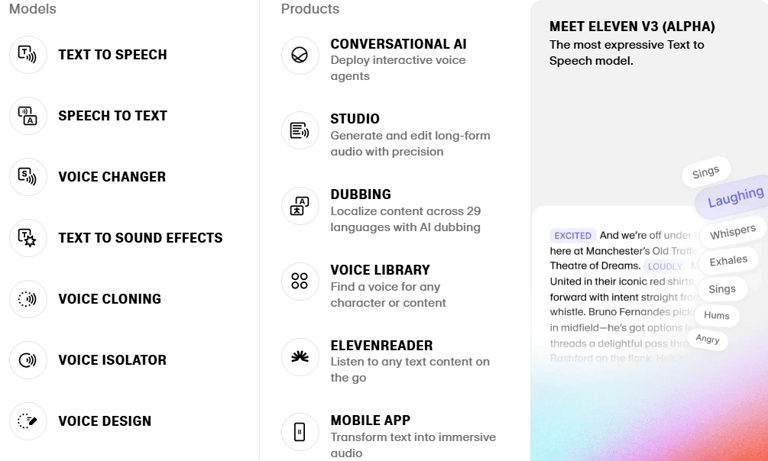

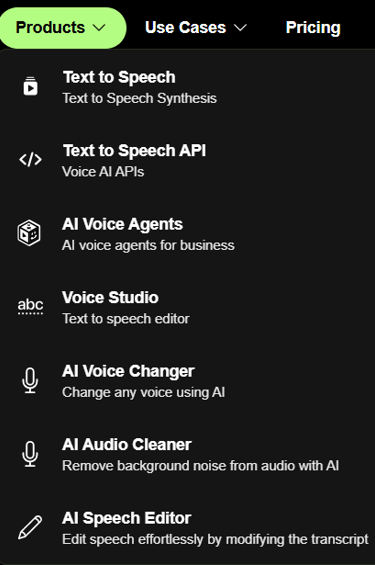

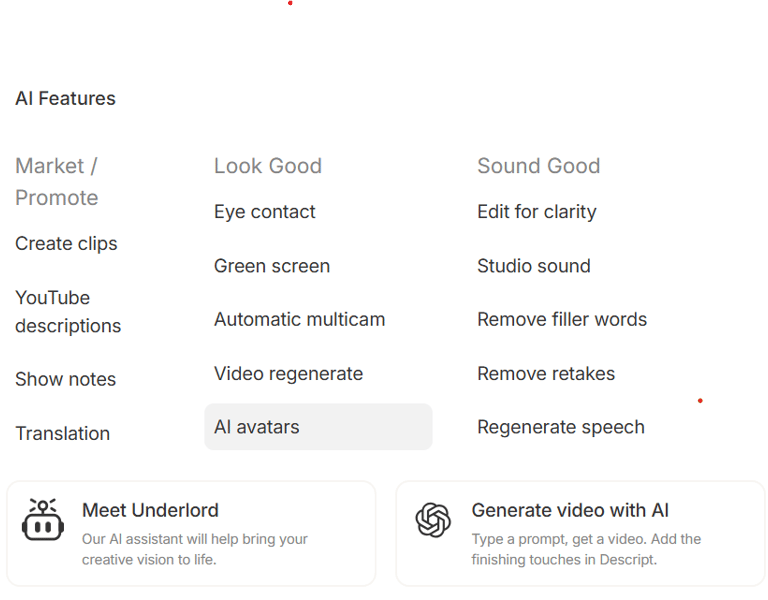

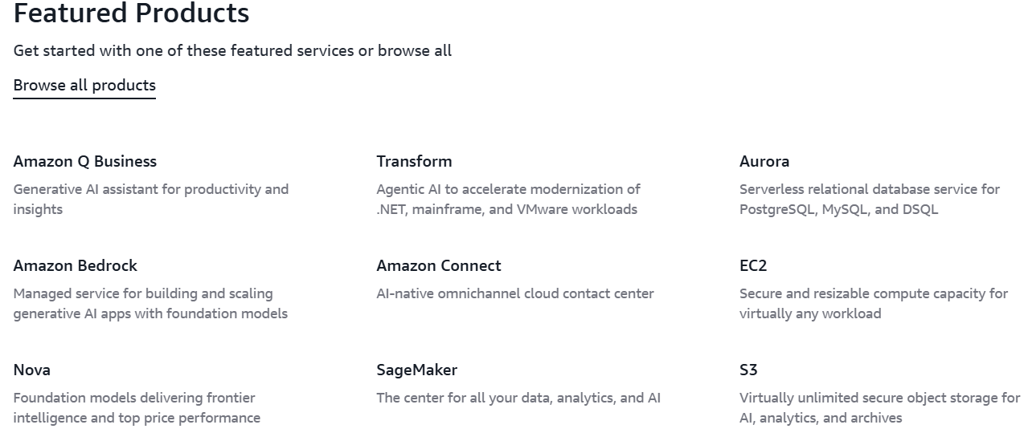

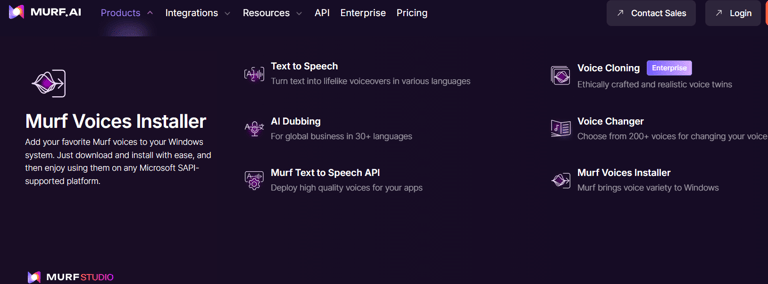

Murf.ai is what I’d recommend to a business trainer or startup founder who needs lots of slide narration or demo voiceovers. Its voices are neutral, professional, and don’t distract from what you’re presenting. The editor lets you adjust pronunciation for technical terms — super helpful for industries like healthcare, finance, or software. I like that you can make small pitch tweaks too, so your slides don’t feel like the same monotone from start to finish.
Resemble AI — Best for Brands That Need Their Own Voice
Some brands want more than just a good narrator — they want a recognisable, unique sound that carries across ads, apps, or virtual assistants. Resemble AI does this well. You record high-quality samples (with permission) and get a custom-branded voice that works in multiple languages. Agencies and bigger startups use it to stay consistent across markets. If you care about that branded feel, this is a serious step up from generic TTS libraries — but expect a bigger budget and a bit more setup work.
So Which AI Text-to-Speech Tool Fits You?
Here’s the angle most reviews miss: you don’t need the “best” — you need the best fit.
YouTuber or course creator? ElevenLabs is a dream for realism and voice cloning.
Podcaster? Descript, Overdub for easy edits, or Play.ht for different guest voices.
Enterprise? Polly’s bulk scale is hard to beat.
Trainer? Murf keeps your slides sounding clean.
Brand with identity? Resemble AI for that signature sound.
You can always test your own script, not just the default demo. That’s the real test of whether it works for your style.
Tips for Testing Text-to-Speech Tools Like a Pro
Run your own real script — ideally something with tricky names or emotional lines. Listen on good headphones and spot weird pronunciation or pacing. Try a translated version if you want multiple languages. And always read the terms before cloning your voice — or anyone else’s. That’s not just legal stuff; it’s also about being an ethical creator.
The Future: AI Voices Keep Getting Better
The next few years will be huge for AI TTS. Expect more subtle emotions, better accents, and smoother real-time speech for NPCs in games, social reels, or even customer support. But here’s my take: no AI will fully replace a talented human voice for a dramatic book or film trailer anytime soon. The real power is blending both — so you save time on everyday stuff and invest in people when it counts.
Time for Verdict
You can pick a tool that fits your workflow, not just the one with the flashiest demo. If you do any narration at all, testing ElevenLabs is worth it to hear what next-level realism sounds like. Play.ht and Polly are great for scale or multiple languages. Murf and Resemble nail the business and brand vibe. Try two side by side — you’ll know what clicks when you hear it.
FAQ: Best AI Text-to-Speech Tools 2025
1. Which AI TTS sounds the most human?
ElevenLabs gets my vote for its natural pacing and emotion.
2. Is voice cloning safe?
It’s safe if you have clear permission. Never clone someone’s voice without consent.
3. Are there good free options?
ElevenLabs, Play.ht, and Murf have free trials for short tests.
4. Best for podcasts?
Overdub for fixing your own voice; Play.ht for multi-voice episodes.
5. Best for courses?
Play.ht and Murf make dry slides much more listenable.
6. Can I get different accents?
Yes — Play.ht, Polly, Resemble, and ElevenLabs all support multiple languages and accents.
7. ElevenLabs vs Play.ht — which is better?
If you want realism and cloning: ElevenLabs. For long scripts with lots of voice options: Play.ht.
8. Are AI voices good enough for audiobooks?
Short ones, yes. Long dramatic reads? A real actor is still better.
9. Will AI replace voice actors?
Not fully. For everyday narration it saves time, but humans still win on big emotional stuff.
10. How do I test safely?
Use your own scripts, compare a few tools, and always get permission for cloning.
